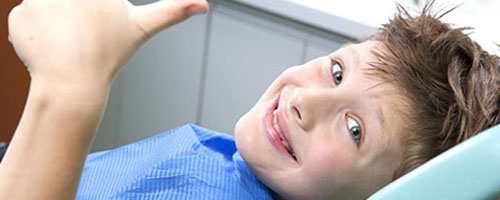Sedation for Children
Pre-Sedation
Instructions before Sedations

If your child suffers from any medical conditions or takes any acute or chronic medicine, you will need to inform your doctor/dentist before the procedure/operation.
- If your child is sick or unwell in any sense, please call the doctor so that he can decide whether it is necessary to postpone the treatment.
- Please ensure your child is dressed in comfortable clothes, with loose-fitting sleeves.
- Please ensure your child does not eat anything for at least 6 hours before the procedure/operation. Breast milk may be taken up to 4 hours before, and water may be taken up to 2 hours before.
- If your child takes chronic medication, please bring it along on the day of the procedure/operation, after discussing this with the doctor.
- Please ensure that you and your child arrive in good time for the appointment, at least 30 minutes beforehand. In some cases, the doctor may feel that your child will benefit from premedication to reduce his/her anxiety and make him/her feel relaxed. If this is the case, the doctor may request that you arrive earlier so the premedication can be administered.
- Please ensure that your child had emptied his/her bladder before the procedure/operation.
- An escort may remain with the child until the sedation is underway and the procedure/operation is about to start. The escort will then be requested to leave the procedure/operation room.
- It may be necessary to put a drip/needle in a vein in your child’s hand, arm or foot. Local anaesthetic ointment or patches are available to apply beforehand. The doctor will discuss this with you and your child.
Post–Sedation
Instructions after Sedations

- A responsible adult must take the child home after the sedation. The child must remain in the company of this responsible adult for the remainder of the day. Sedation will not be given if the child arrives without an escort.
- Once at home, your child must rest quietly. Interfere as little as possible with the child’s activities.
- Your child may not engage in activity or play with equipment that requires alertness or coordination (e.g. swimming, cycling) for at least 12 hours following the procedure/operation. You should also keep your child away from potentially dangerous areas, like the kitchen, bath and pools of water.
- If your child is taking any regular medication, ask the doctor when you should give him/her the next dose after the sedation.
- The sedation may produce amnesia (memory loss). This is temporary, sometimes lasting for a few hours.
- After a dental procedure, be careful that your child does not bite his/her numb lip, as he/she will not be able to feel if it is painful.
- About 20% of children complain that they see double, or cannot see, after sedation. This is a temporary drug effect, sometimes lasting for up to 6 hours.
- Some children are aggressive after sedation. This may be a drug effect. Ensure that the child is not left alone. Contact the doctor/dentist if you are worried about this.
- Introduce food and fluids slowly after sedation, as the child may feel nauseous and may vomit.
- Your child should not experience nausea or vomiting after sedation. If your child vomits more than once, please contact the doctor.
- Do not let the child eat or drink if he/she is nauseous. The child may have clear fluids after being instructed to do so by the doctor. If your child feels fine after having clear fluids, you may then progress to solids.
